As part of the School of Education’s GCRF funded international project, Can Dual Apprenticeships Create Better and More Equitable Social and Economic Outcomes For Young People? A Comparative Study of India And Mexico (PI: Professor Oscar Valiente, University of Glasgow, School of Education; Co-I: Dr Srabani Maitra, University of Glasgow, School of Education; Professor Mhairi Mackenzie, University of Glasgow, School of Social and Political Sciences), two high-impact hybrid skill synergy summits were organised in India on Dec 3rd and 17th, 2021 respectively.
The summit was hosted and organised by two of the research project partners in India, The Bengal Chamber of Commerce and Industry as well as the Indian Institute of Management Calcutta (IIMC). The objectives of the summit meetings were to bring together academics, industry heads, policymakers, TVET teachers, principals and most importantly TVET students on the same platform. The summits, therefore, provided an opportunity to articulate and extensively discuss TVET related skill training gaps, lack of employment opportunities, as well as young people’s needs and aspirations for decent employment and sustainable livelihood from multiple perspectives, rather than adopting a top-down approach of focusing on policy planners and government bureaucrats. Findings from the project were shared by Oscar Valiente, Srabani Maitra, Dr Clara Fondevila Puig (Glasgow) and Saikat Maitra (IIMC) in order to elicit and initiate inclusive conversations about the pandemic related impacts on TVET, and possible ways to move forward together to ensure better educational experiences and sustainable employment opportunities for TVET students, especially women.
The first day of the summit was inaugurated by the Honorable Minister of State - Department of Technical Education, Training and Skill Development, (Government of West Bengal), Dr Humayun Kabir, who highlighted the need to impart skill training to young people and to make them skilled and job-ready, despite the multiple constraints faced historically by TVET institutions in India. Additionally, he also emphasised the constant improvement required in the existing workforce of the country in order to generate employment and better possibilities for socio-economic mobilities for marginalized youth populations. In this context, he highlighted the various strategies that are being undertaken by states like West Bengal to improve the TVET system – including through long and short duration training programs - and encouraged industry leaders and stakeholders to wholeheartedly participate in this endeavour for providing gainful employment possibilities for the youth. This was followed by panel presentations by eminent industry leads, national chambers of commerce and TVET educators focusing on the challenges, opportunities, experiences and emerging areas of collaboration between multiple stakeholders around skill synergy in relation to TVET in India.
The second day of the event was inaugurated by Mr Anoop Kumar Agrawal, Principal Secretary- Department of Technical Education, Training & Skill Development, Govt. of West Bengal followed by ITI teachers and principals, employers of TVET graduates and TVET students. The main highlight of the second day was the inclusion of the voices of young people, who shared their aspirations and anxieties about their visions for a more impactful and efficacious vocational education that might truly change their life experiences for the better. They emphasized for instance the need for better infrastructure, government support, better employability skills and clearer pathways for labour market integration. Dr Agrawal emphasised the need for more academic research in the TVET area and the importance of working in a collaborative and enabling environment to ensure better skill development for young people. Discussions also emerged on TVET pedagogy, lifelong learning, reskilling and upskilling opportunities. Key spokespeople for the events included international policy experts from the Indo-German Programme for Vocational Educational and Training, Technical Advisor, Deutsche Gesellschaft fur Internationale Zusammenarbeit (GIZ) GmbH, and representatives from eminent Non-Governmental Organizations working in the area of skill development for social integration of at-risk youth populations. They pointed out the critical need to overcome the lack of synergy between skill supply and demand in the TVET sector in order to enable labour market access for young people.
Both events were well attended (with proper government protocols maintained for gatherings during the pandemic) and followed by open discussions that addressed several challenges faced by industries, TVET schools, government policymakers and academics in providing learning opportunities that are inclusive, participatory and would take into consideration the needs and experiences of marginalised youth populations in the TVET.
At the end of the summit, participants and speakers highlighted the critical need for these summits in order to take forward the in-depth exchanges between different stakeholders. Several participants came forward to share how this research gave a new perspective on how young people have been dealing with the pandemic and the impact on vocational education institutions due to the challenges posed by the economic dimensions of the pandemic on the school-to-work transition of young students. It was decided that short reports on key recommendations and insights emerging from the two summits would be shared with participants to get their suggestions to further develop the TVET in India. Subsequent summit events would be planned to carry this conversation and the network of stakeholders around TVET further. As organizers of the event, the research project team is extremely grateful to all participants for sharing their thoughtful insights and experiences at both events.
Gallery images (click to enlarge):
Discussion topics:
- Log in to post comments


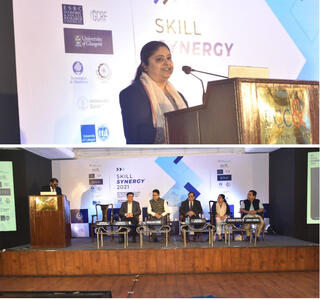
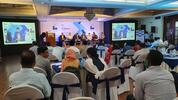
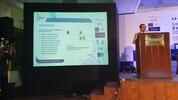
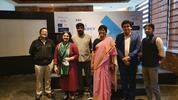
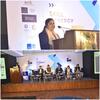
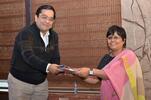

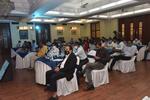


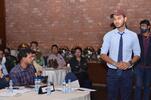


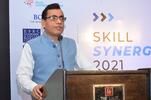
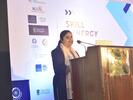
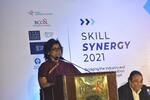












Latest Comments